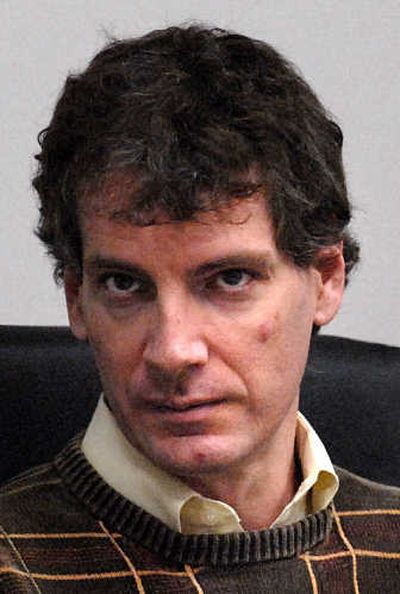Duncan’s exam results should be public, media argue

The public should be able to know results of the psychological exam that will help decide whether admitted murderer Joseph Duncan is competent to act as his own attorney in his sentencing hearing, lawyers for Idaho and Washington news organizations said Friday.
U.S. District Judge Edward Lodge should also unseal several documents that discuss why testimony from one of Duncan’s victims, Shasta Groene, should be heard in a closed courtroom, a motion filed in federal court in Boise said.
The Spokesman-Review, the Associated Press, and other newspapers and television stations are challenging an effort to exclude the public from Duncan’s sentencing hearing if Shasta Groene takes the stand or the jury is shown a video taken of the torture and murder of her 9-year-old brother, Dylan. Duncan faces life in prison or the death penalty for the 2005 kidnapping of the two children, whom he repeatedly molested, and slaying of Dylan.
“The decision whether to close courtrooms to the public and seal court documents from public view has serious constitutional implications,” attorneys for the news organizations argue in the motion. Letting the public see records that the prosecution or other parties use to argue in favor of closure would show people how the process works, they add.
Duane Swinton, an attorney for the news organizations, said more than a third of the 414 documents in the case have been sealed from public view. In some cases, the file merely says “sealed document” and doesn’t say what the document is.
Jury selection for the hearing is on hold until Lodge decides whether to grant Duncan’s request to serve as his own attorney. As part of that decision, the judge ordered a Boise psychologist to examine Duncan and report whether he is competent to represent himself. Lodge’s order for the exam indicates it will be kept from the public once it is filed.
A federal court in Ohio refused to seal a similar report in a death penalty case, the motion argues. In that case, a judge ruled there were “notable benefits to be gained from public access to reports” but no persuasive argument it would hurt the process.
Duncan’s competency report will be a key consideration in deciding whether he can act as his own lawyer, the motion argues.
Shasta’s father, Steven Groene, is objecting to the news organizations’ request to keep the hearing open, and he filed an affidavit to support his views. It was filed under seal with the court, so the public can’t see it even though the news organizations’ attorneys already have.
If the court is concerned about records that publicly identify Shasta or Dylan Groene, it could redact their names, the motion says. But the names are widely known, it adds.
Other documents, filed by the prosecution and Shasta’s guardian ad litem, apparently support closing the courtroom. They were filed under seal, the motion says.
“And, of course, responding to these documents as to arguments contained therein why the courtroom should be closed is an impossibility since the documents are sealed,” it adds.
Prosecution and defense attorneys are under a judge’s gag order that prohibits them from discussing the case.